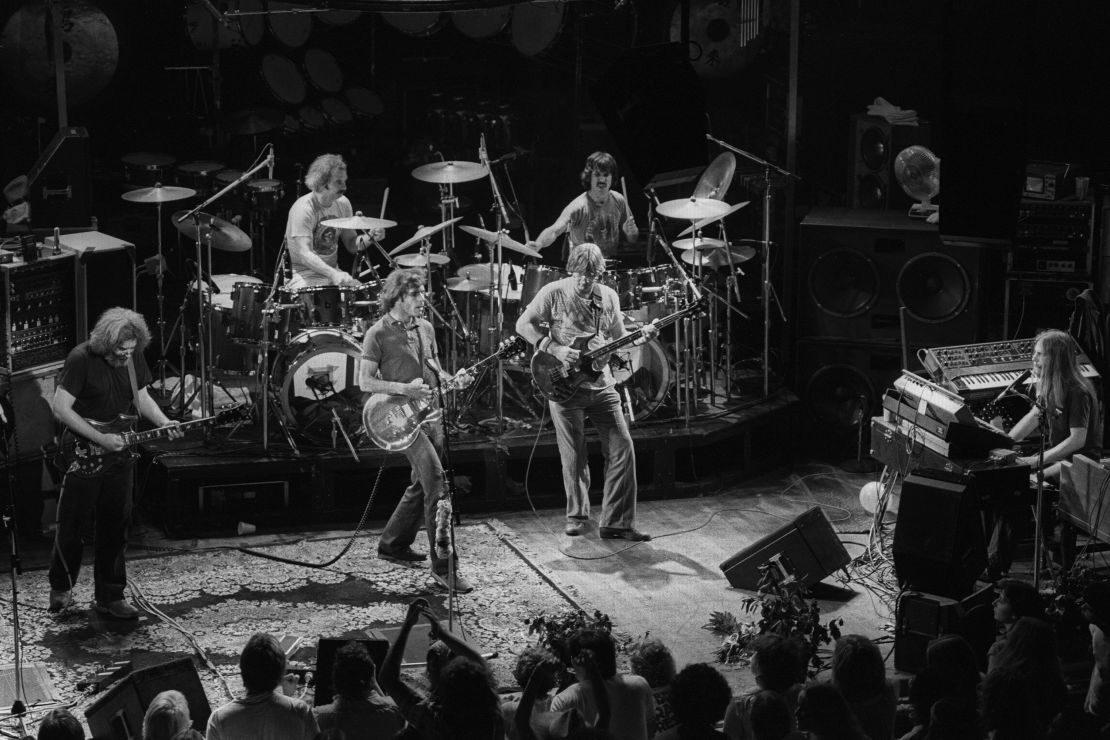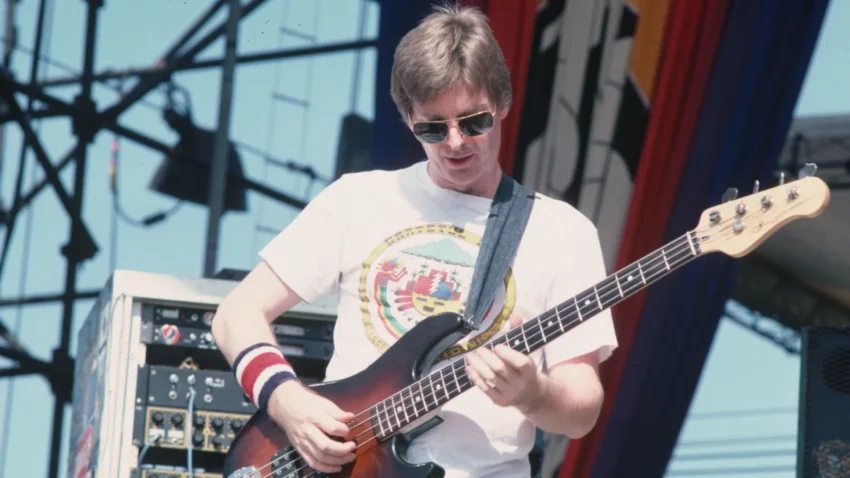Grateful Dead bassist and founding member Phil Lesh has died at 84
Phil Lesh, bassist and founding member of iconic rock band Grateful Dead, has died. He was 84.
The news was announced on Lesh’s verified Instagram on Friday, which said he died “peacefully” on Friday morning.
“He was surrounded by his family and full of love. Phil brought immense joy to everyone around him and leaves behind a legacy of music and love,” the announcement on social media read. “We request that you respect the Lesh family’s privacy at this time.”
CNN has reached out to a representative for the Grateful Dead. No cause of death was immediately available, but the Associated Press reported that Lesh had previously survived prostate cancer, bladder cancer and a liver transplant in 1998 brought on by a hepatitis C infection and years of heavy drinking.
A native of Berkeley, California, Lesh co-founded the band Grateful Dead in 1965 in Palo Alto with Jerry Garcia, Bob Weir, Ron “Pigpen” McKernan and Bill Kreutzmann.
Beginnings
Also trained on the violin and trumpet, Lesh eventually earned second chair in California’s Oakland Symphony Orchestra while still a teen.
Lesh was driving a mail truck and working as a sound engineer for a small radio station in 1965 when Garcia asked him to play bass for a fledgling rock band, then known as The Warlocks.
After getting a feel for the instrument and studying with Garcia, the pair would often trade off on who would lead the melody of the songs they created, thereby establishing one of the many specialties the Dead would become known for – long and improvised passages that meant no two live performances of a certain song were ever alike.
“It’s always fluid, we just pretty much figure it out on the fly,” Lesh said during a rare interview with the AP in 2009. “You can’t set those things in stone in the rehearsal room.”
Although mostly known for his legendary and freestyle bass playing, Lesh composed music for some of the band’s most beloved songs, and also occasionally provided vocals. Among those tracks were “Pride of Cucamonga,” “Unbroken Chain” and “Box of Rain.”
In 2002, Lesh along with Weir observed what it felt like for the history-making group to perform onstage.
“It’s when the pipeline is open, and that eternal moment – as he is describing – which is where music really lives, is open to us and we become the vessel to which that passes, so in a way music is about bringing eternity to time,” Lesh told CNN at the time, in response to Weir’s remarks.
The band became known for its legendary live performances, blazing the trail for other popular groups to follow, like Phish.
Regarding the Dead’s staunch fanbase and following, Lesh said in 2002 “that it’s the community that really generates this music, and we are just there on the receiving end to tap into the pipeline and feed it back to them, maybe at a higher level. So we get it from them, and we give it back to them.”
Later years

The Grateful Dead performing at the Warfield Theater in San Francisco on October 2, 1980. Front, from left: Jerry Garcia, Bob Weir and Phil Lesh. (Photo by Clayton Call/Redferns) Clayton Call/Redferns/Getty Images
After the Grateful Dead disbanded in 1995 following Garcia’s death, Lesh mostly abstained from joining the other surviving members for their onstage reunion performances.
However, he did take part in the 2009 Grateful Dead tour, and again in 2015 for a series of “Fare Thee Well” concerts marking the band’s 50th anniversary.
He continued to play frequently with a rotating cast of musicians he called Phil Lesh and Friends.
The Dead will be honored in January at a benefit gala ahead of the Grammy Awards in Los Angeles. The band was honored with a lifetime achievement award from the Recording Academy in 2007.
In a conversation with CNN in 2006, Lesh reflected on the feeling of performing with his bandmates.
“It’s paradise. At that moment, I’m not really there. And no one is. We are the music, and our personalities as such really cease to exist at all. We’ve been subsumed into the greater personality of the group mind, that’s what’s been created. That’s what’s created when we are creatively improvising, and the flow is really happening. When we are actually channeling, we are opening that pipeline to another reality that speaks to us. And we are acting as transformers, and we have to step that down into musical thought. But this is not something you can do consciously, learn how to do or be taught. It’s just something that happens to you when the stars are aligned properly and when your individual consciousness is open enough.”
Lesh is survived by his wife Jill, and sons Brian and Grahame.
This story has been updated with additional information.
CNN’s Jason Morris contributed to this report.
